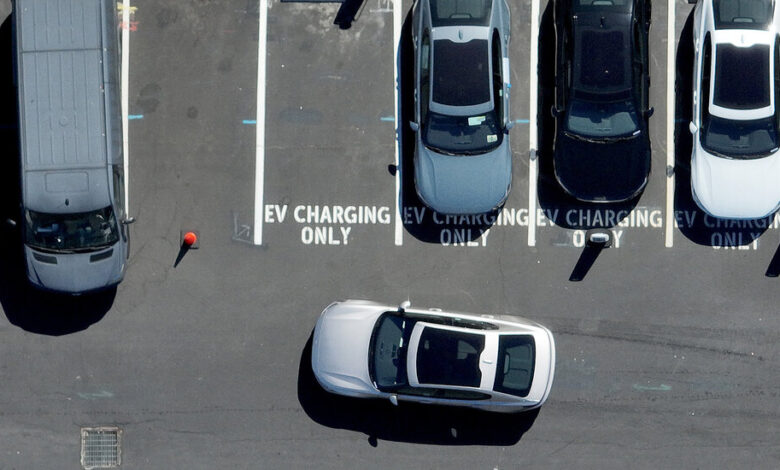Republican Plan to Kill California’s E.V. Policies Hits Senate Snag

A ruling by the Senate parliamentarian on Friday prevents Republicans in Congress from using a legislative maneuver to block California’s ban on the sale of new gasoline-powered cars by 2035. This decision is a setback for the Trump administration’s efforts to dismantle policies supporting electric vehicles.
California, with a federal waiver under the 1970 Clean Air Act, has set stricter automobile emissions standards than the federal government. By 2035, all new cars sold in the state must be emission-free. This policy aims to shift the auto industry towards electric vehicles and combat climate change, making it a prime target for the Trump administration’s elimination efforts.
The parliamentarian ruled that the waiver granted to California is not subject to the Congressional Review Act, which allows lawmakers to overturn recent regulations with a simple majority vote. Senate Democrats hailed this decision as a victory for climate policies, emphasizing California’s authority to set stringent vehicle emissions standards.
California Senators and other Democrats celebrated the ruling, calling it a win for environmental protection. They criticized the Trump administration’s attempt to repeal California’s standards through the Congressional Review Act.
The Trump administration submitted the automobile waiver to Congress, along with two other California waivers approved by the Environmental Protection Agency, which aimed to regulate vehicle emissions and promote clean air standards.
The Senate parliamentarian’s decision, supported by California Governor Gavin Newsom, upholds California’s authority to enact strict clean air standards. California’s role as a leader in environmental protection has paved the way for other states to adopt similar regulations.
Despite Republican efforts to repeal the California waiver, the ruling presents a roadblock, not a definitive barrier. Lawmakers may still attempt to work around the decision to pass related legislation.
California’s influence in the auto market, along with its commitment to combat air pollution, underscores the significance of its climate policies. The state’s ambitious plan to ban gas-powered cars by 2035 has garnered support from multiple states, indicating a shift towards cleaner transportation.
Despite Republican arguments that the California waiver sets a national policy, the Government Accountability Office’s findings suggest otherwise. California’s waivers have never been presented to Congress for a vote, highlighting the state’s authority in setting clean air standards.
Senator Shelley Moore Capito and other Republicans pushing to repeal the California waiver face challenges following the parliamentarian’s ruling. The House could potentially overturn the waivers, putting pressure on the Senate to act.
Republicans may still explore avenues to challenge the ruling and eliminate California’s policies. However, the time constraints and procedural hurdles pose obstacles to swiftly overturning the state’s clean air standards.
If Republicans in the Senate adhere to the parliamentarian’s decision, options to dismantle California’s policy are limited. Withdrawal of the waiver by the E.P.A. administrator would require a lengthy process. The E.P.A. has criticized the California waiver as burdensome and unnecessary, highlighting the ongoing debate over clean air regulations.
This article includes reporting by Laurel Rosenhall from California.





